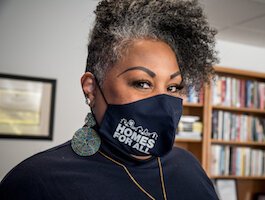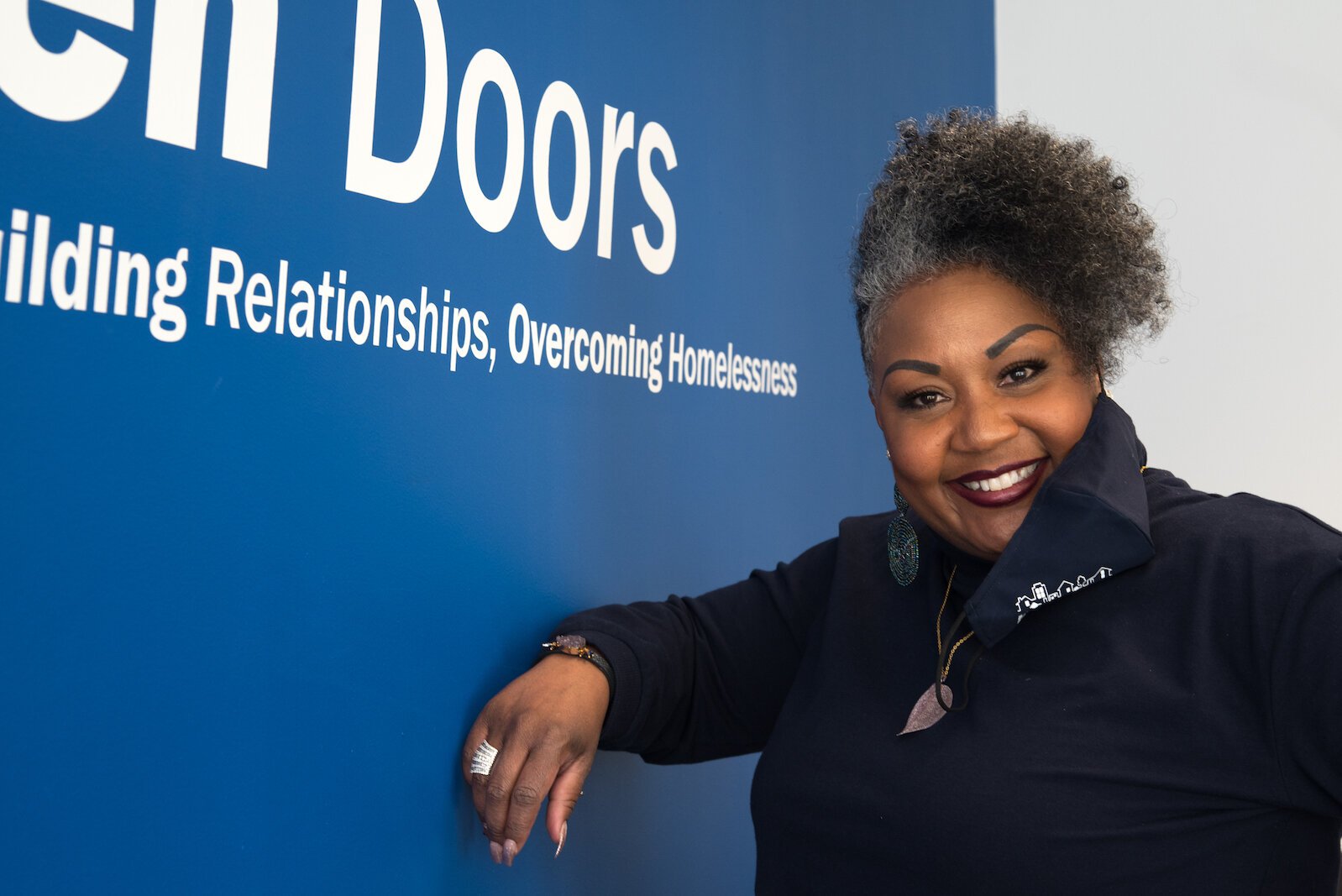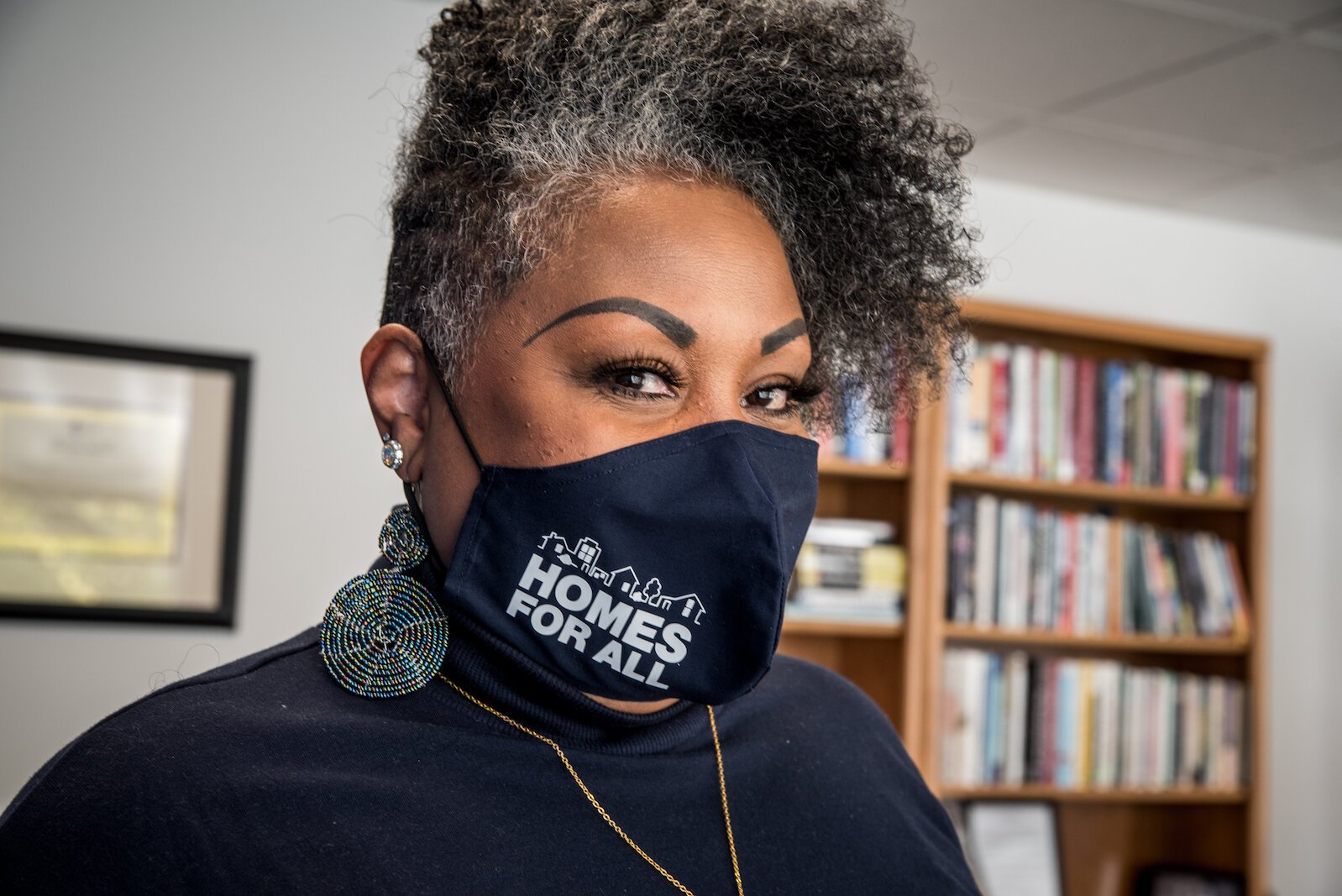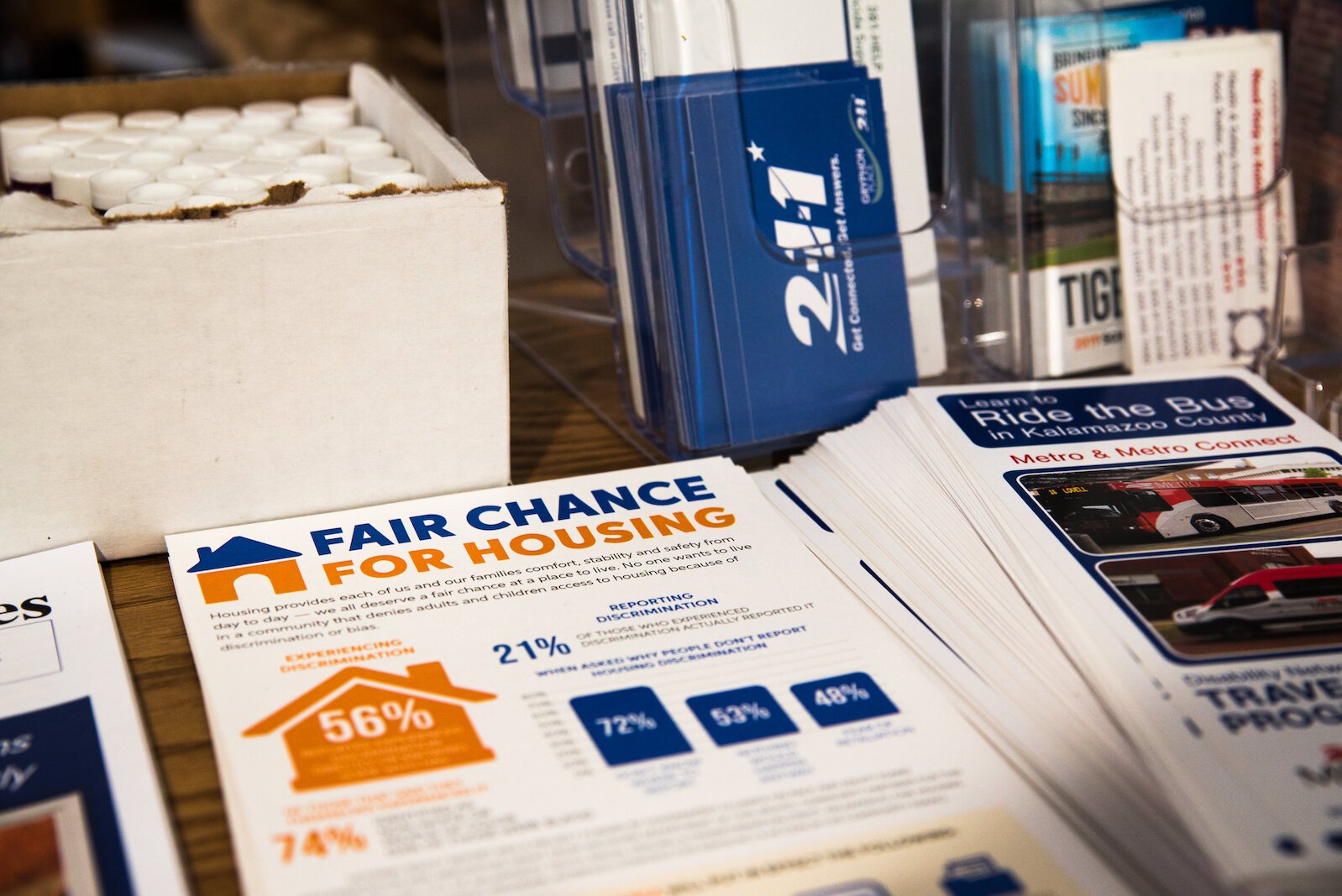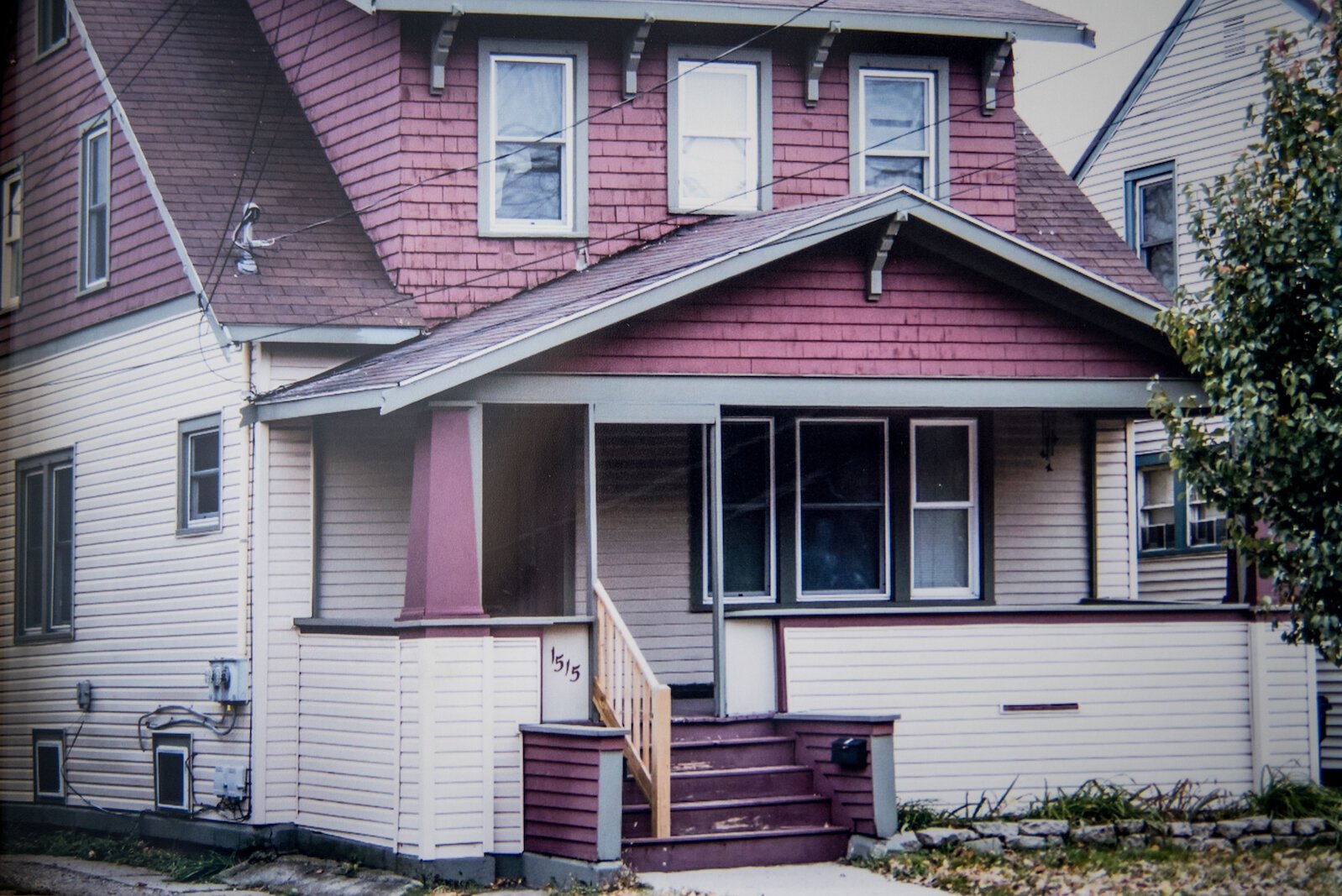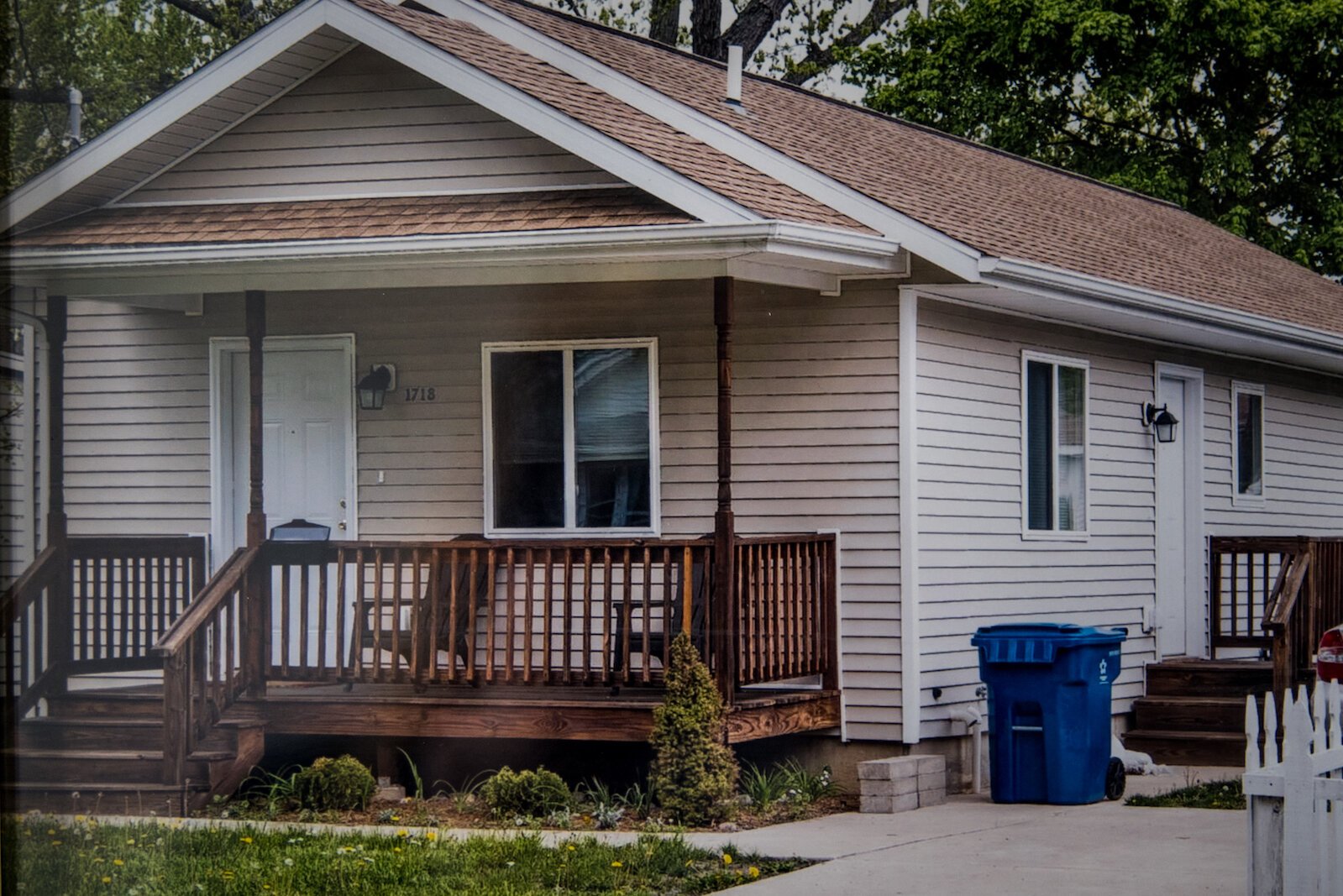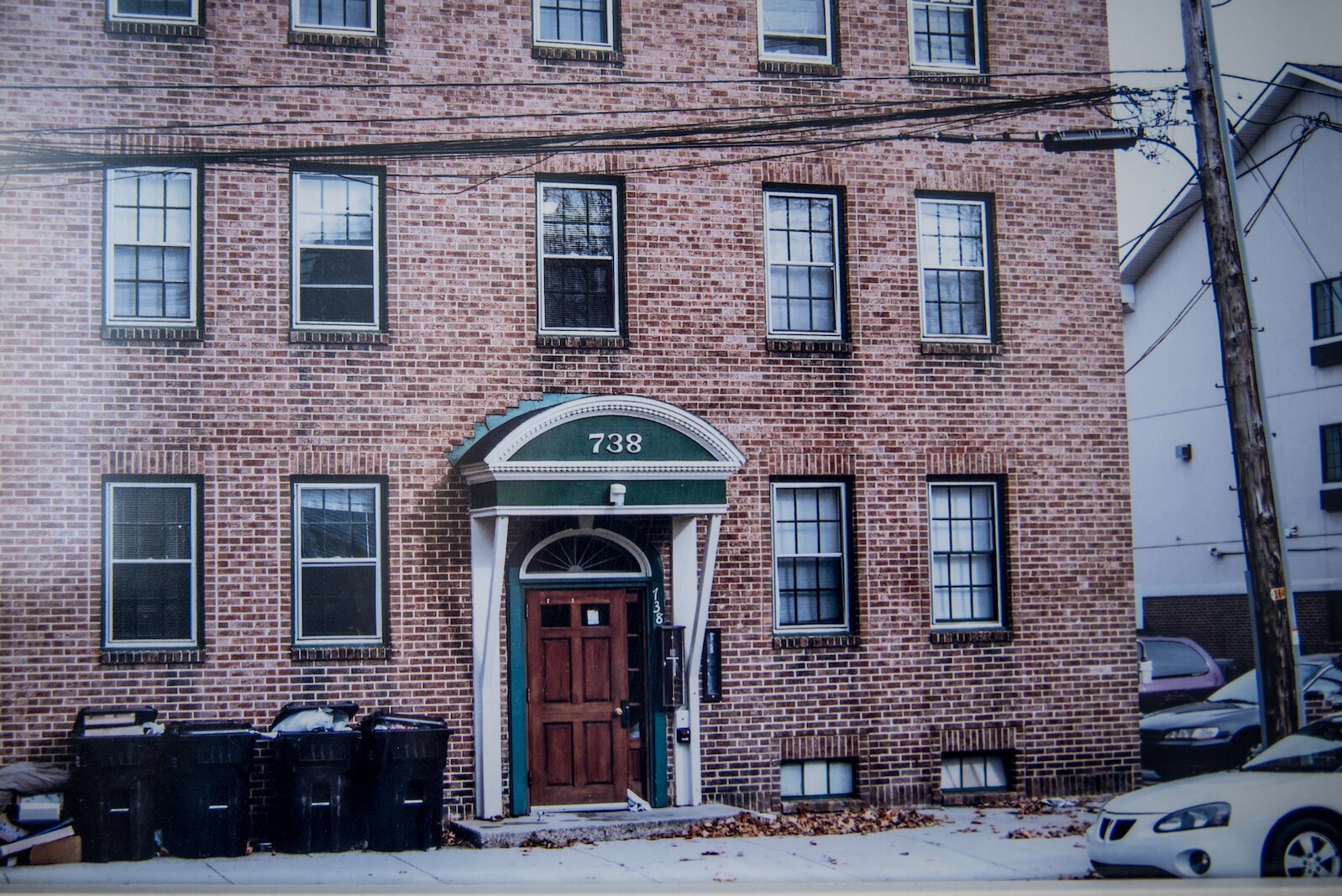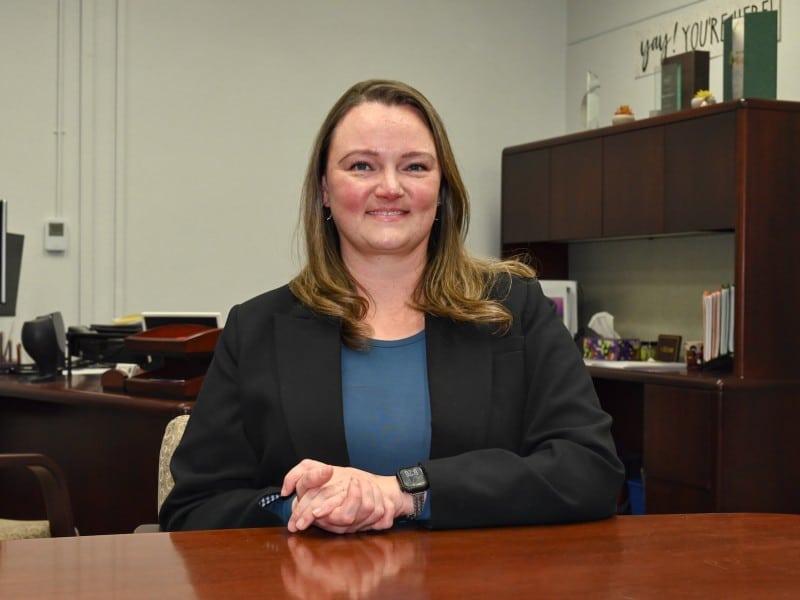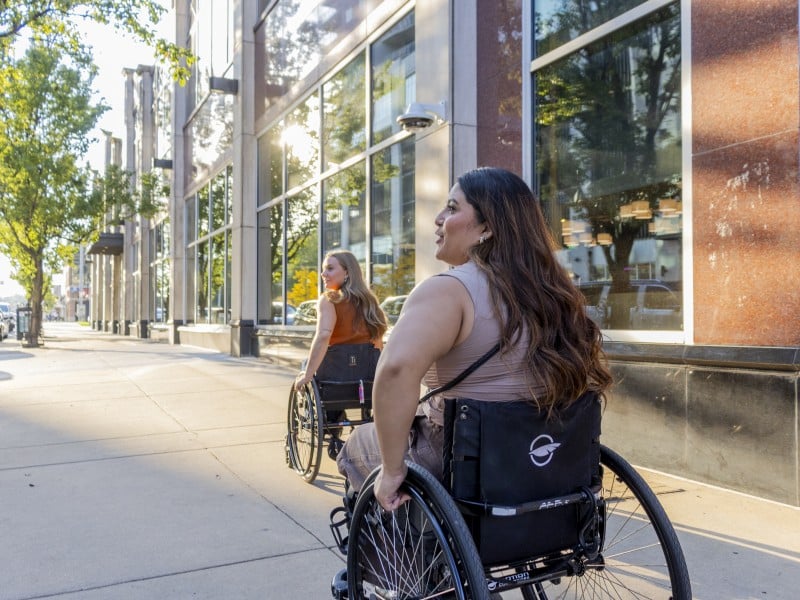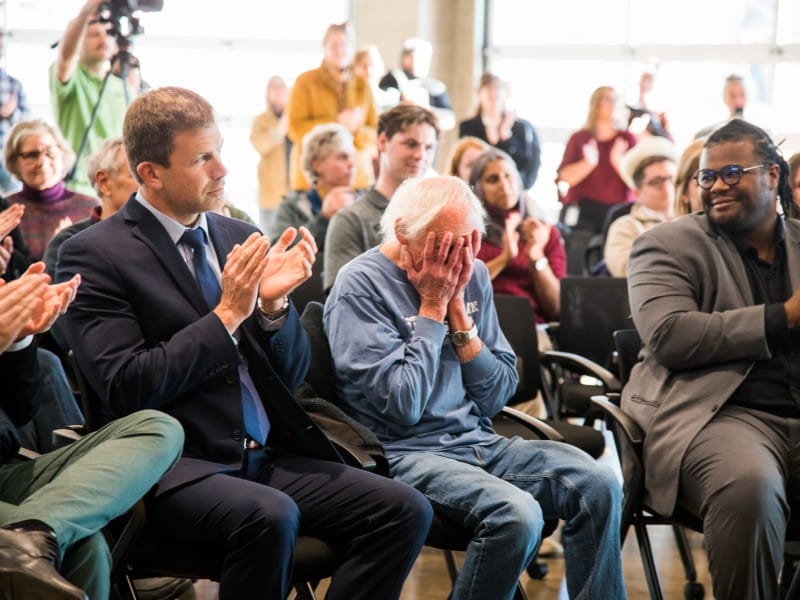The Kalamazoo County Homes for All millage on the Nov. 3 ballot also will help with funds to increase the number of affordable homes.
Editor’s note: This story is part of Southwest Michigan Second Wave’s On the Ground Kalamazoo series.
This story was updated Nov. 5 to reflect election results from the Nov. 3 vote on the millage to provide for the homeless.
Pathway Home, a new project starting in 2021 as a collaboration between Open Doors and Kalamazoo Neighborhood Housing Services (KNHS), will make homeownership a reality for people who have recently experienced homelessness.
Open Doors, a Kalamazoo nonprofit, provides temporary shelter and social services to men and women who have nowhere to live. They also provide affordable apartments, at less than half the market rate, which are available to families and individuals who have a job and are sober, but who are priced out of the rental market. After a few years in rentals, these families are often ready to move into market-rate housing or pay a mortgage. However, finding an affordable house for sale in Kalamazoo County is difficult.
According to Stephanie Hoffman, Open Doors Executive Director, Pathway Home will help these individuals and families financially prepare to buy a home in Kalamazoo, find a house for them to purchase, and assist them in the first three years of ownership.
Open Doors has been operating shelters and affordable apartments for the last 40 years. But in the summer of 2018, Hoffman realized the need for a homeownership program to provide long-term solutions for homelessness. At that time, the Bronson Park Freedom Encampment was protesting for affordable housing in Kalamazoo, and demonstrators who were experiencing homelessness were forced out of the park as bulldozers destroyed their shelters. There was a critical need for access to housing and Open Doors was already at capacity.
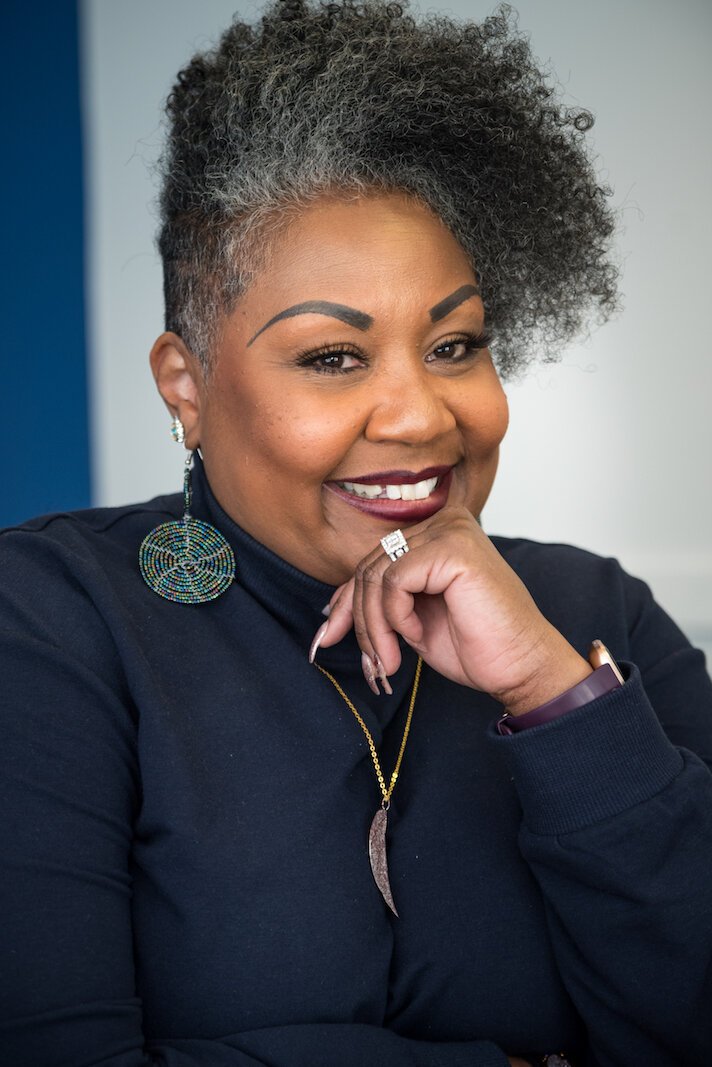
“I immediately got to thinking, what can we do to effect change as a small nonprofit housing organization here in town?” says Hoffman. “We can become more intentional about serving people for a very specific amount of time. We should be able to move them out (of affordable apartments) in 2 to 5 years. That should be able to open space up for another family or individual who needs that level of support. So where should we move (these former renters) to? We should start doing homeownership. That’s the next level. So I began having conversations with people at the city, at the foundations, really anybody who would listen.”
The path to homeownership for new homeowners, especially those who have experienced homelessness, takes strong collaborations between organizations. Pathway Home is a partnership between Open Doors and KNHS and supporters that include Kalamazoo County and the City of Kalamazoo, plus the Kalamazoo County Land Bank, philanthropists, and individual donors.
The Kalamazoo County homelessness millage on the Nov. 3 ballot, approved 66,918 to 63,610 in a countywide vote Nov. 3, will also help with much-needed funds. Portage City Commissioner Chris Burns is a co-sponsor on the millage with Stephanie Hoffman.
“Across the whole county the vacancy rate (for affordable housing) has been below 4 percent,” says Burns. “If people are in a shelter that is supposed to be short term, there isn’t room for them to complete the process of moving to an affordable housing apartment and then into market rate (housing).”
About a third of the millage would go to housing vouchers for rent assistance and the rest of the money is meant to be used to build more affordable housing or rehab existing homes, as it is often less expensive to avoid condemnation than to build new homes.
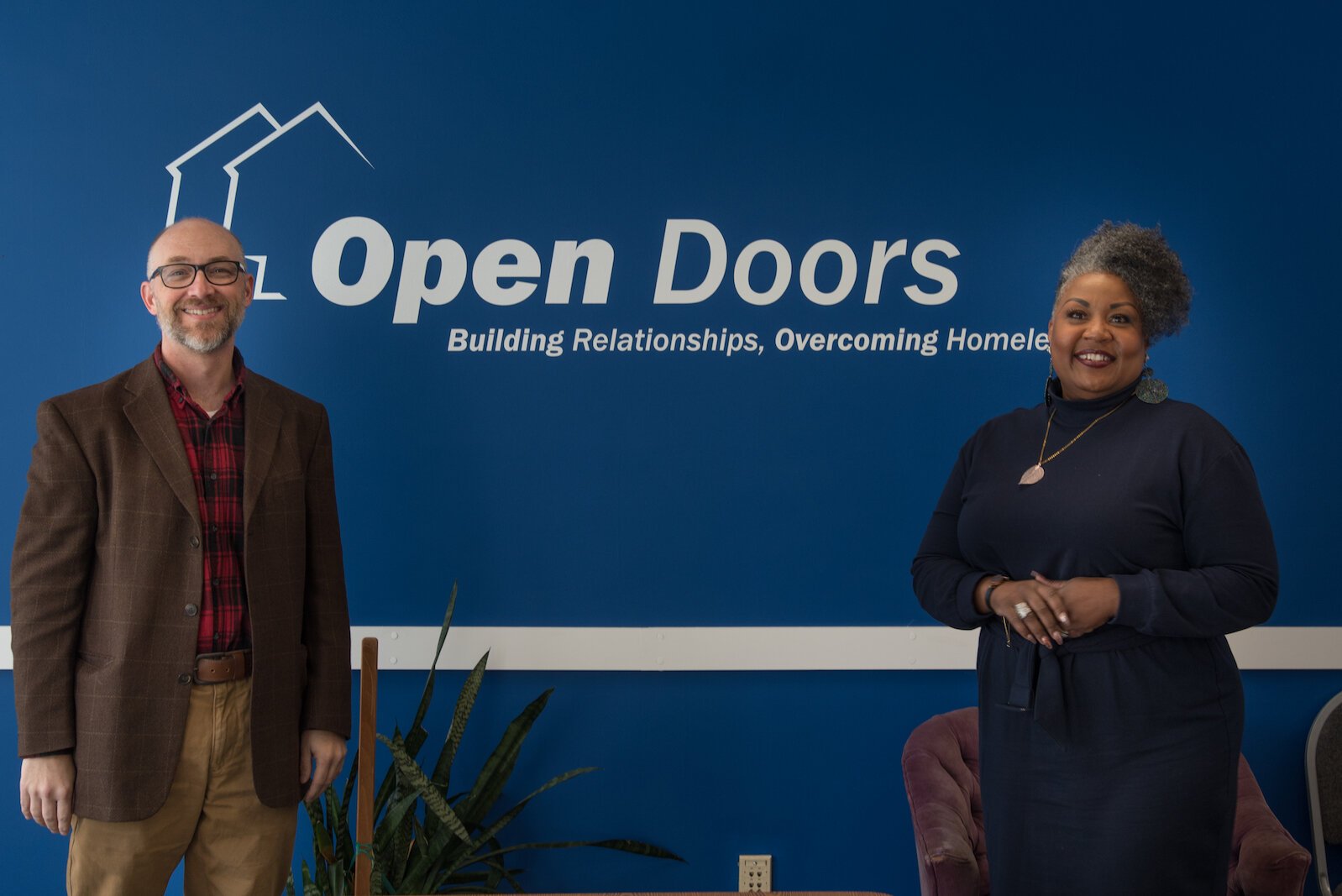
About 10% of families and individuals living in Open Doors’ affordable housing apartments have met all the requirements of becoming homeowners, good-credit, savings, and steady employment. The hurdle that had to be overcome wasn’t the ability to pay a mortgage on a home, but the limited affordable housing stock in Kalamazoo.
Housing prices have been on the rise in Kalamazoo and finding a home for around $100,000 has been increasingly difficult. To meet demand, Matt Lager, KNHS Executive Director, says that the Kalamazoo area needs about 3,000 more affordable housing units. This number includes both apartments and single-family homes. Affordable housing is usually considered to be about 30 percent of the gross income of a household. When there is a deficit in affordable housing, “the only outcome then is that people pay money that is not affordable to them, which you can only do up to a certain point or you end up in an emergency situation,” explains Lager.
Pathway Home will provide people from Open Doors with mortgage readiness programs through KNHS. Prospective homeowners in the program will have first choice on houses that become available through KNHS, both rehabs or new builds, as well as getting to view houses found by the realtor on staff at Open Doors.
Depending on the cost of the houses, applicants will be able to get a traditional mortgage, down payment assistance, or enter into a land contract, where clients would rent to own their home. For the first three years in their home, they will have assistance with problems that come up, such as fixing a broken furnace, with help from KNHS or Open Doors depending upon the circumstances.

Participants will also have the option of buying multi-unit homes. KNHS is currently developing a duplex as an experiment to see how it could work for this program. Lager says that “it can really increase the affordability for a low or very low-income household… to have the money coming in from the second unit. It’s sort of basic math at that point because of how much money there is to pay the mortgage.”
Participants in Pathway Home will also be able to choose what neighborhood they want to live in, or if they want to live in a neighborhood at all. As Hoffman says, “Not everybody wants to live in the city.” Pathway Home will be open to all parts of Kalamazoo County, including rural areas.
The ability to choose the location of the new home is important because restrictive covenants and redlining have shaped Kalamazoo’s neighborhoods, not by what people can afford, but by their race. These practices are now illegal, however, many potential homeowners are priced out of areas that were once restricted to white buyers only. And although Black people only make up 12% percent of the county population, they make up 60% percent of the homeless population according to the Continuum of Care Homeless Count from HMIS, and only 36% of Black people living in Kalamazoo City own their own home, reports The American Community Survey 2012-2016.
Giving people the opportunity to buy or build in these areas will disrupt this system, eventually leading to a less segregated Kalamazoo, Hoffman says.
“We are used to seeing these programs only in poor neighborhoods,” Hoffman says. “What would it look like if we saw a financial product that was based on equity where families could move wherever they want? That would really start to blur those invisible red lines that we all see.”
Homeownership is also a form of wealth and investment that has been denied to Black people by refusing them loans and by limiting their housing to only the urban core neighborhoods and older housing stock.
As Lager explains, “It’s really about wealth building and equity. The 20th Century has taught us that homeownership is the path to increasing middle-class wealth. At the same time (generational wealth building) was going on in suburban areas, some urban areas, especially diverse areas with a lot of African Americans in the neighborhoods, were really frozen out from those tools. The model (of increasing wealth through homeownership) still works and we certainly want to accelerate the amount of Black homeownership opportunities in Kalamazoo.”
Burns agrees. “If we are ever going to make progress on our racial wealth disparity issues, homeownership needs to be a component of it.”
But at the end of the day, Pathway Home will directly impact the families and individuals who participate by helping to improve their lives.

